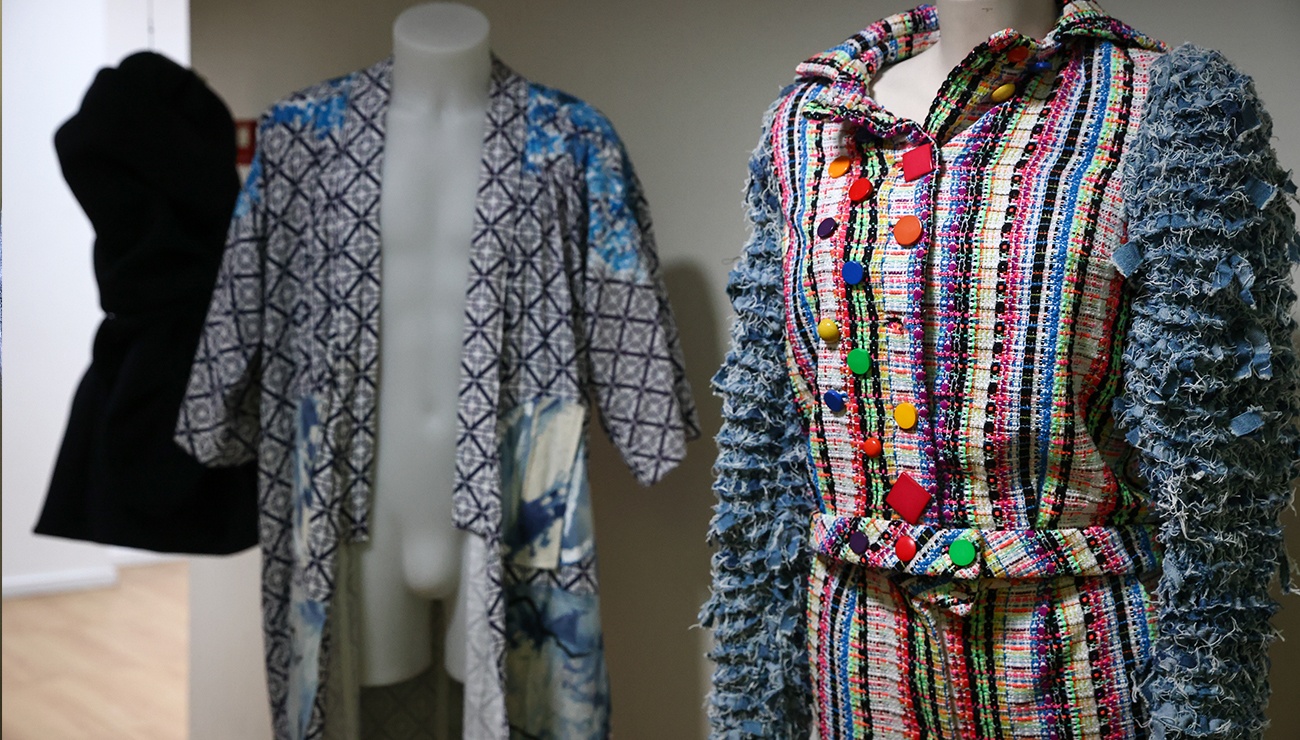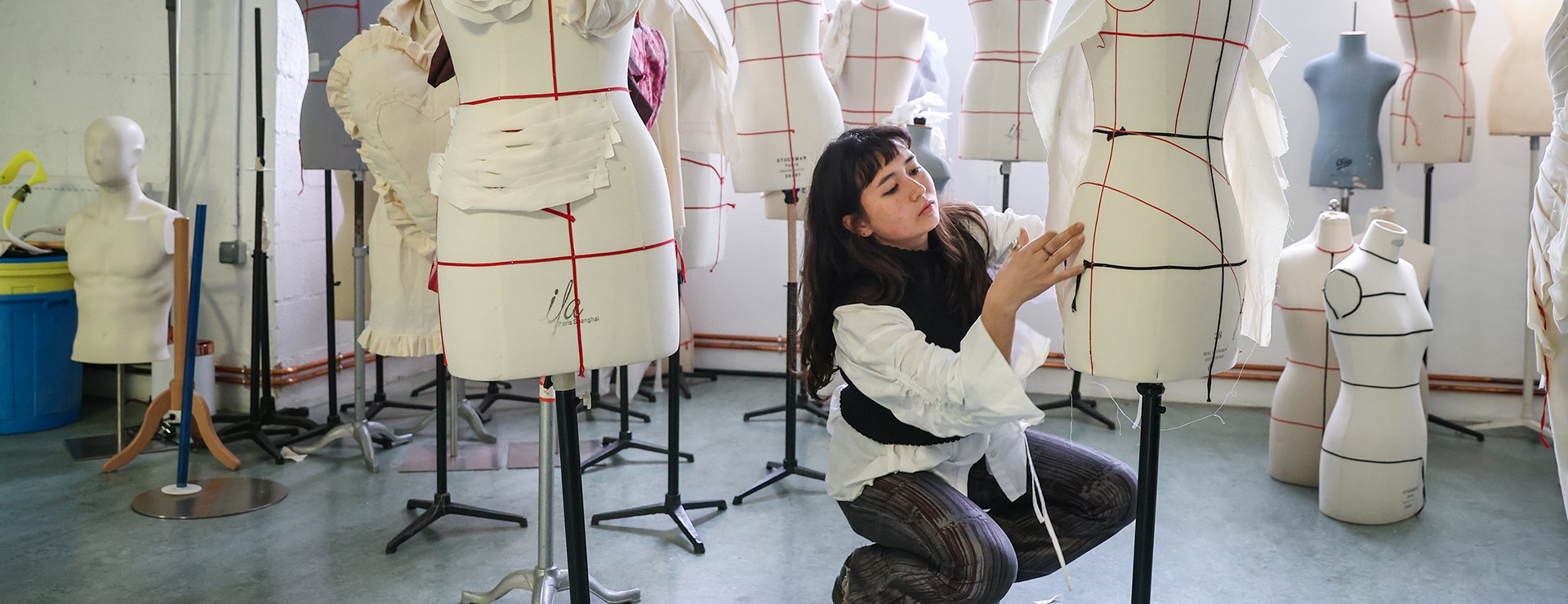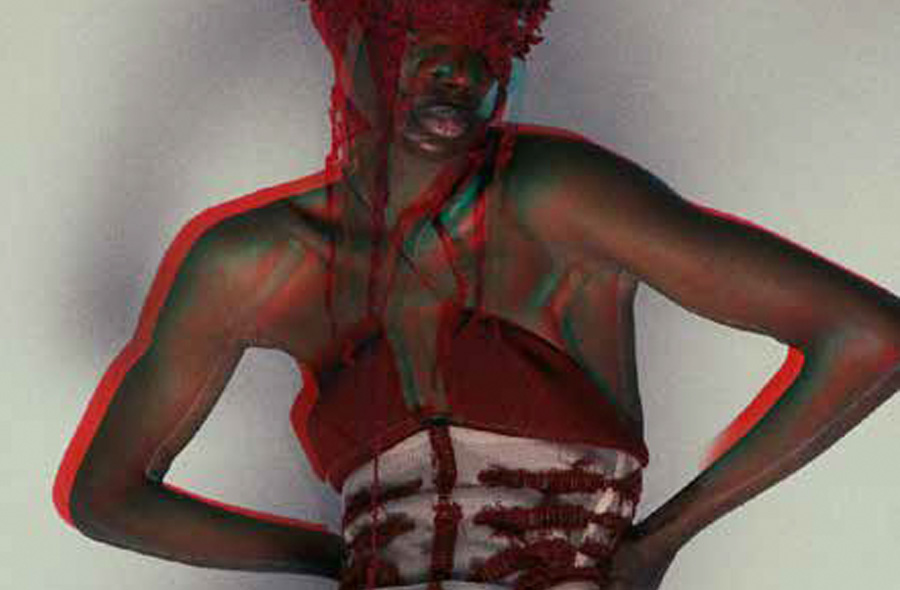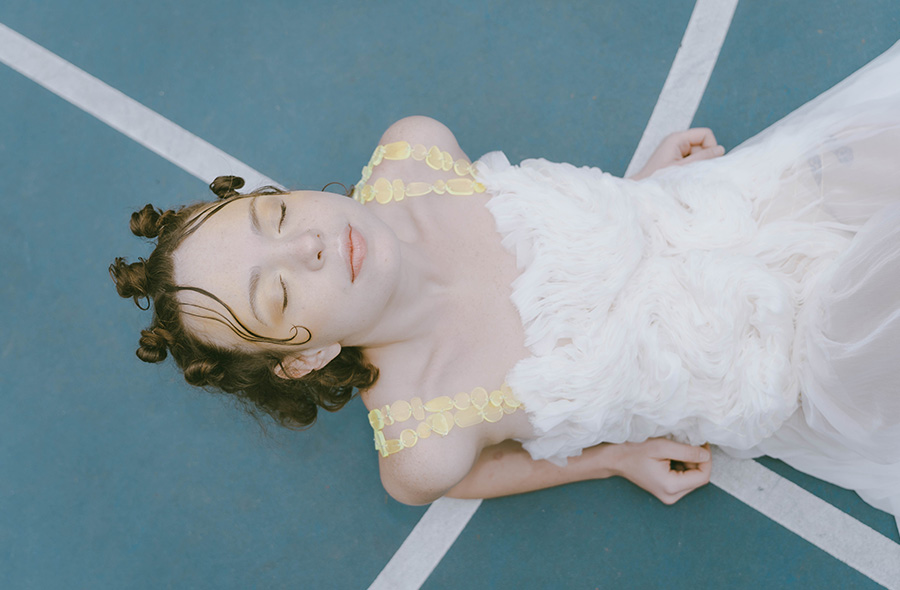- Available in: Paris and Istanbul
- Language: Full French or Full English
- Duration: 2 years
- Cooperative Education: French Language Only
- ECTS: 120
- Next intake: September 2025
This Sustainable Fashion specialization is designed for students who wish to reflect on the notion of impact through the creation and production of an eco-responsible fashion collection. As such, they will be led to make choices and experiments in terms of design strategy, production techniques, sourcing materials, marketing strategy, and circularity, with a focus on transparency and traceability.
Learning Objectives
- Forge Forward-Thinking Sustainable Design Practices: Students will push the boundaries of sustainable fashion by creating visionary designs that incorporate cutting-edge eco-friendly materials, zero-waste techniques, and circular design principles, leading the charge toward a radically sustainable fashion industry.
- Advance Impact Measurement and Management for Future Sustainability: Students will become leaders in quantifying and managing the environmental and social impacts of fashion design, utilizing advanced tools and emerging technologies to set new standards for transparency and accountability in sustainable fashion.
- Drive the Evolution of Ethical and Sustainable Fashion Brands: Students will spearhead the development of progressive fashion brands that prioritize ethical practices and sustainability, leading industry-wide transformation through transparent supply chains, groundbreaking fair labor initiatives, and responsible sourcing strategies.
- Design for the Next-Generation Circular Fashion Economy: Students will reshape fashion design with a focus on circular economy principles, developing products that are not only recyclable and durable but also part of innovative business models that redefine garment life cycles and drastically reduce industry waste.
Postgraduate - Year 1
The 1st year courses are common to all specializations. Their aim is to establish common fundamentals to reconcile commercial and creative challenges.
6-month internship or cooperative education (French programs only)
First-year highlights:
- Partnerships with companies to organize battles and masterclasses
- Personalised support
- 6-month internship
Creative Processes
This module grouping is designed to enhance students’ creative capabilities. It focuses on nurturing innovative thinking and artistic expression through various stages of the fashion design process. By studying contemporary and historical influences, participating in workshops, and collaborating on design projects, students will develop a unique creative approach and gain the skills to bring their fashion concepts to life.
- Contemporary Creativity Analysis
- Creative Process Workshop
- Digital Design Workshop
- Fashion Inconography & Styling
Business Development Processes
This module focuses on the innovative processes involved in developing and launching successful fashion ventures. Students will learn how to identify market opportunities, create compelling business plans, and implement effective strategies for growth. Emphasis is placed on fostering creative thinking and problem-solving abilities to drive innovation in product development, branding, and marketing.
- Business Planning
- Smart Supply Chain System
- Intellectual property
- Branding
- Distribution
Production
The Production Processes in Fashion module grouping focuses on providing a comprehensive understanding of the manufacturing processes in the fashion industry. This module covers the entire production cycle, from concept development and material selection to garment construction and quality control. Students will explore innovative production techniques, sustainable practices, and the latest technological advancements in fashion manufacturing in order to develop their own collection.
- Pattern & Draping Development
- Innovative materials
- Collection Development
2 Electives to Choose From
Students will get to pick 2 electives out of 6 available. Each of them gives a taste of what the 5th year specializations will encompass. Such a structure provides an opportunity for full customization of the learning experience.
- Luxury
- Magazine project / Media Management
- Fashion and eco-responsibility
- Entrepreneurship
- Tech
- Fashion Marketing & Management
Fashion Lab
The Fashion Lab module grouping is handled by the Direction of Corporate Relations of IFA Paris. Through a variety of practical workshops, students will get the opportunity to be involved in real-life case studies provided by partner brands. They will also have the opportunity to work on their professional profile through customized coaching sessions to ensure they can secure a 6-month internship.
Postgraduate - Year 2
Students who choose this specialisation will be encouraged to reflect on the concept of impact management through the creation and production of a sustainable fashion collection. They are required to make choices and experiment in terms of design strategy, production techniques, the sourcing of materials, marketing strategy and circularity in the interests of transparency and traceability.
6-month internship or cooperative education (French programs only)
First-year highlights:
- A year shared with the MBA Sustainable Fashion – Business Major students, fostering interactions and synergies
- The school is certified by the United Nations for the Conscious Fashion & Lifestyle platform. The case studies in this program are designed to meet the requirements of the United Nations
- Students commit, through their final projects, to addressing the challenges set by the United Nations’ Sustainable Development Goals
- Creation and production of a sustainable collection based on the principles of sustainability and circularity
Common Base
This module grouping addresses fashion students as future entrepreneurs, providing them with comprehensive knowledge and practical tools about Sustainability, the transformation process it initiates in the field of fashion and textile apparel, and the way it can be integrated to one’s own enterprise.
- Sustainable Value Creation/ Eco-lines and Creative Design Strategies
- RSE/CSR/ DPEF/ ESG Criteria
- Eco-Design and LCA (Life-Cycle Analysis) / Impact Management / Kering EP&L / Carbon Audit
- Carbon footprint
Sustainable Sourcing Commitment
Designed as an essential, innovative, practical tool, guiding students to review, analyze and experiment sustainable fashion strategies and techniques directly at the fashion supply chain level, grounded in a real situation context.
- Organic Materials and Certifications
- Innovative materials
- Eco-Friendly Fabrics
Smart Supply Chain System
Before moving to technical aspects and matters of the sustainable fashion supply chain, students are invited to measure the positive impact of smart supply chain management and sustainable value creation in the emergence of new sustainable fashion business models. This sequence within the course practical part should arouse students’ creativity, business skills and dynamic approach of design development…while they are looking into, exploring, examining varied options of sustainable value proposition within the chosen strategy of “designing fashion for longevity”.
- Eco-innovation
- Innovative Business Models
- Infrastructural Foundations for Sustainable Production & Development
Textile Processing
In that segment, students move to technical aspects and matters of the sustainable fashion supply chain. Focusing on textile processing, at the bottom of the apparel production unit, they clearly review raw material processing, that is yarn production, fabric production, and identify which aspects within yarn spinning or fabric weaving or knitting can have ecological and social implications.
- Yarn processing
- Weaved Fabrics
- Vegan Leather, Non-Wovens and Alternatives
Finishes Processes
This module grouping proposes to focus on embellishment and finishing processes, a traditional step within the making of garment in the supply chain, and provides students with a state of play of the new developments concerning these processes in relation to sustainability.
- Dyeing Techniques and Technologies
- Traditional, Current and Innovative Printing Techniques
- Aesthetic and stylistic potential
Design process
Students will create Mood Boards expressing their innovative vision of an Eco-Line and translate concepts into 3D shapes and sketches. They will integrate waste and impact management in the development of their eco-line visual identity elements.
- Creation of Mood Boards
- Story Board for Photoshoot
Pattern Making – Draping – Production
This module grouping focuses on equipping students with the technical skills necessary to transform design concepts into tangible products for eco-friendly fashion lines. This module emphasizes the integration of sustainable materials, ethical production processes, and efficient resource management throughout the garment production cycle. Students gain proficiency in translating designs into patterns that minimize waste and maximize efficiency, ensuring that their eco-line creations are not only aesthetically appealing but also environmentally responsible.
Marketing & communication
The objective of this module grouping is to allow participants to understand how to position sustainable brands competitively in their respective markets through developing a differentiated DNA.
- Market research
- Marketing Mix of an Eco-Line
Closing the Loop
Participants will look into the last part of a product’s lifecycle and will explore how to extend it or integrate it within a sustainable framework. They key question addressed in this module grouping is how to reintegrate or disintegrate creatively.
- Full Sustainability Prism
- Strength & Coherency (concept, purpose, values…)
- Products Sustainability Presentation
- Demonstration of the Offer’s Eco-Responsibility
Capstone
Participants will look into the last part of a product’s lifecycle and will explore how to extend it or integrate it within a sustainable framework. They key question addressed in this module grouping is how to reintegrate or disintegrate creatively.
Fashion Lab
The Fashion Lab module grouping is handled by the Direction of Corporate Relations of IFA Paris. Through a variety of practical workshops, students will get the opportunity to be involved in real-life case studies provided by partner brands. They will also have the opportunity to work on their professional profile through customized coaching sessions to ensure they can secure a 6-month internship.
Program Compliance Data
Validation of the program
Successful completion of the program depends on validating the targeted skills.
No pathway/No transfer
Result indicators
- Drop-out rate: N/A (1st class graduates in 2024)
- Attendance rate for certification tests: N/A (first graduating class in 2024)
- Success rate of the program: N/A (first graduating class in 2024)
- Further study rate: N/A (1st class graduates in 2024)
- Rate of entry into employment after 6 months: N/A (1st class graduates in 2024)
- Employment rate in the targeted profession “Fashion Marketing and Product Development Manager” at 6 months: N/A (first graduating class in 2024)
- Value added by the establishment: N/A (1st class graduates in 2024)
Prerequisites:
Course duration
The Fashion Marketing and Product Development Manager course consists of a two-year cooperative education, with +/- 504 hours per year.
Classes are held in person or online and take the form of group work, face-to-face teaching, conferences, and more.
Operational objectives/Target skills
- To analyse trends and strategies in the fashion and luxury market as part of the development of a brand or concept
- To create a comprehensive fashion or luxury brand or concept, including the analysis of the competition and image strategy
- To define a marketing strategy for a fashion or luxury brand or concept
- To develop communication and digital marketing strategies designed to promote a fashion or luxury brand or concept
- To devise a distribution strategy aimed at rolling out the fashion or luxury brand or concept across its territories and markets, online, off-line and phygitally
- To manage a team as part of the development of a fashion or luxury company
Teaching methods employed
Classes are held in person or online and are structured on the basis of group work, face-to-face teaching, lectures, etc.
Assessment methods
Oral and written assessments, continuous assessment, evaluation during project phases.
Admission Requirements for Postgraduate
Prerequisites:
- Bachelor graduate
-
Depending on the chosen teaching language (English or French), non-native speakers should provide a language proficiency score:
- English teaching language: an IELTS score of 6.5 or above, or a TOEFL score of 79 or above. Alternatively, provide an English training certificate or proof of previous education in English.
- French teaching language: a TCF score of B2 or equivalent. Alternatively, a proof of previous education in French.
- Significant professional experience in related fields preferred, but not required (internships are considered).
Required documentation:
- Resume
- Motivation letter
- Passport photo
- Passport copy for non-EU applicants and ID copy for EU applicants
- Language proficiency certificate
- High school diploma or higher & Transcript
- Portfolio
For more information about the application process, please visit our How to apply page.

Accessibility
You may be interested in the possibility of enrolling on one of our programs.
Contact us so that we can provide you with all the information and advice you need: accessibilite@ifaparis.com.



